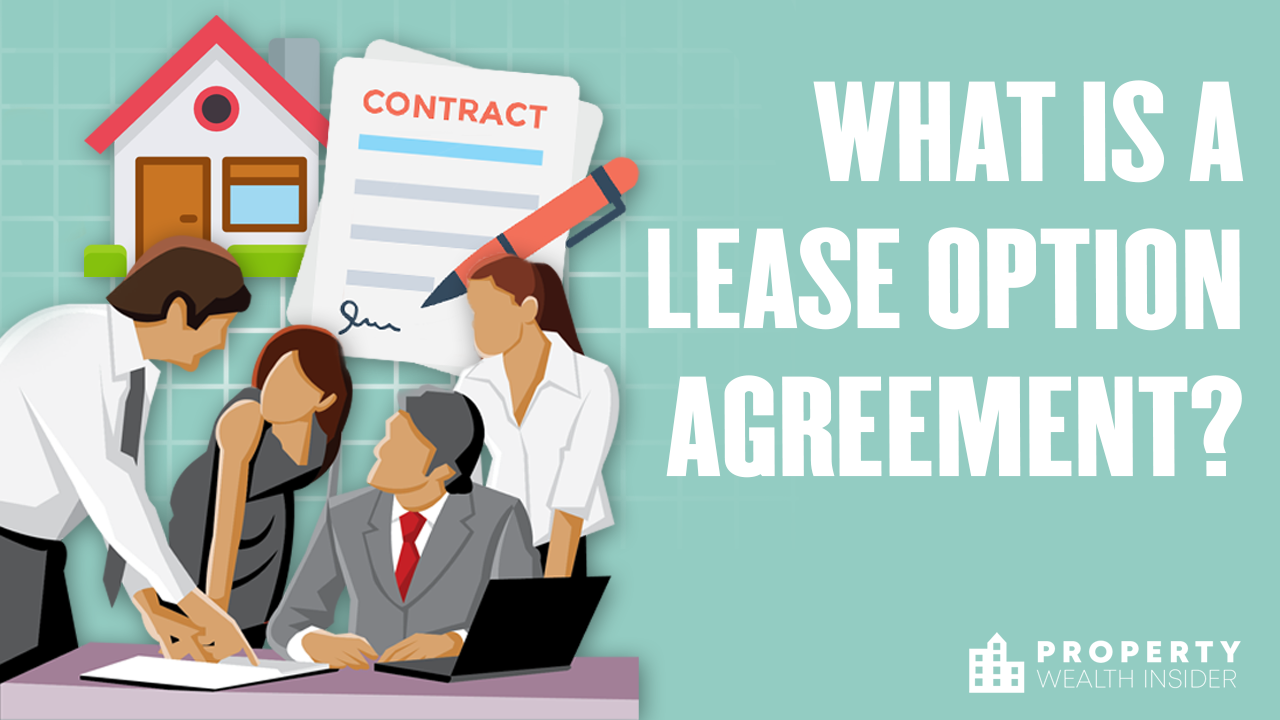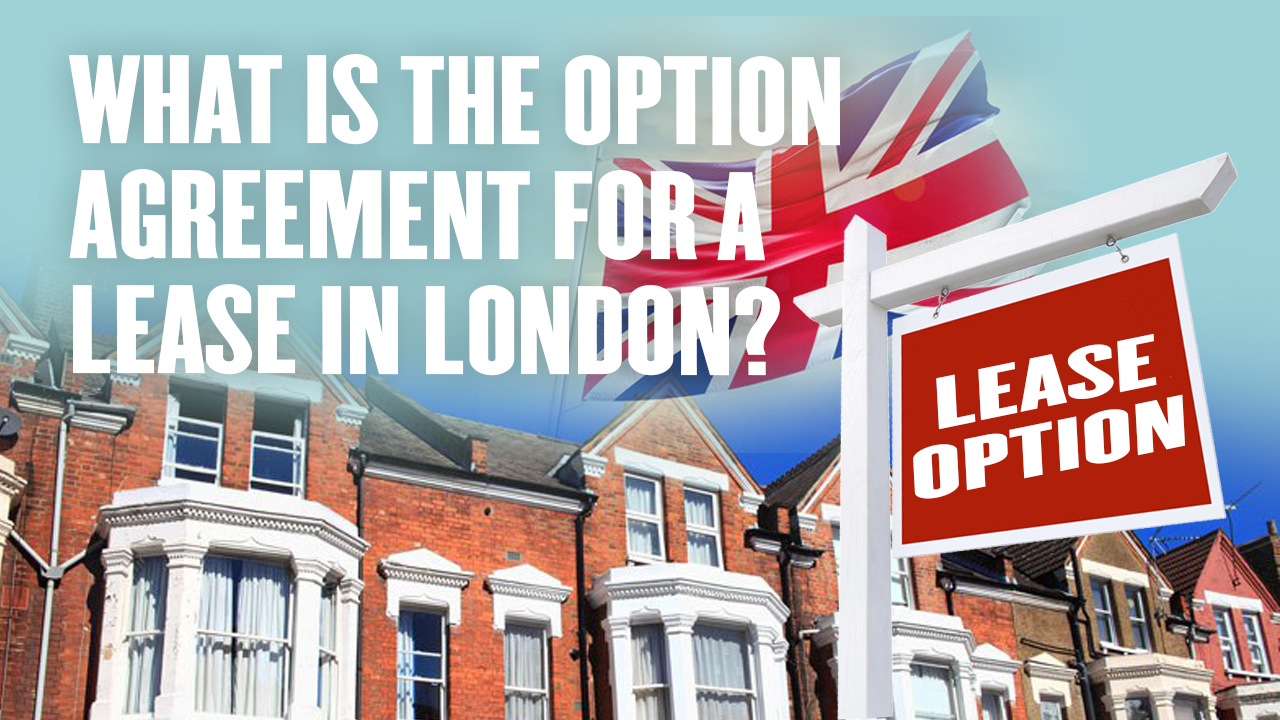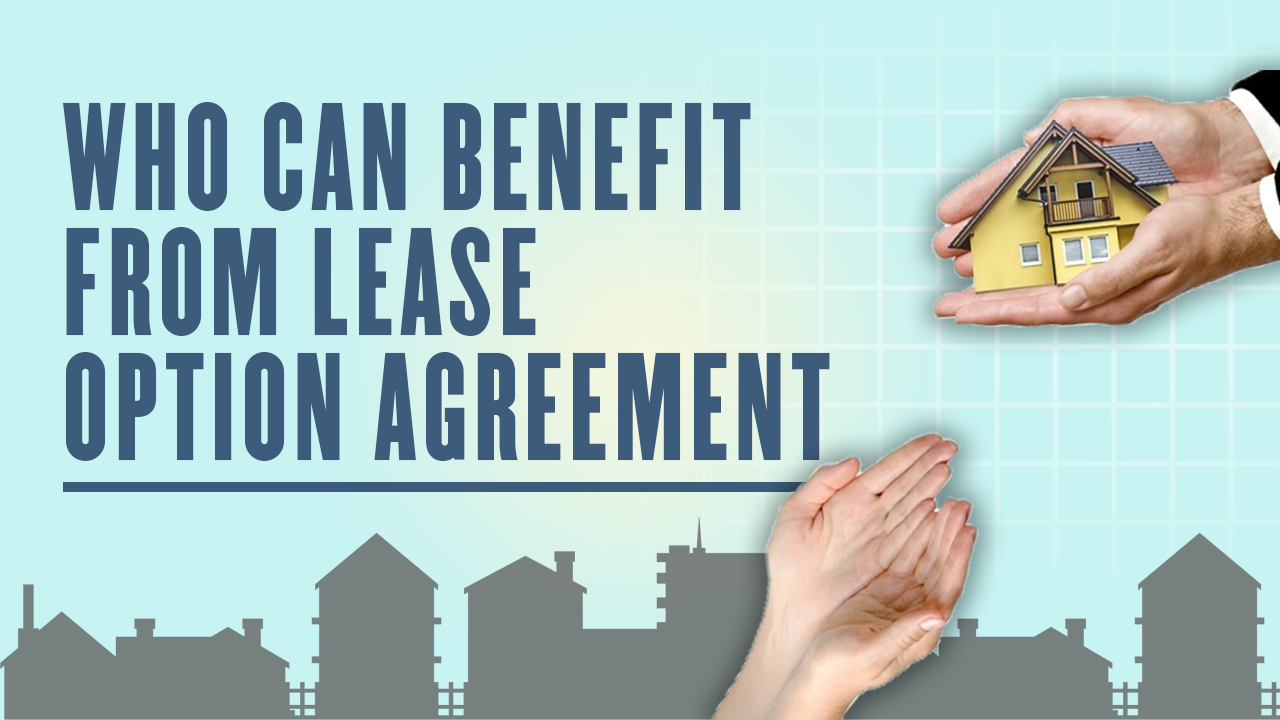What Are Lease Options?
A lease option, or lease with an option to buy, is a real estate contract that offers a property renter the opportunity to purchase the property after the lease period concludes. The contract entails an upfront option fee paid by the renter for the potential to buy the property, along with a monthly fee contributing to the down payment if the renter chooses to exercise the buying option.
During the lease term, the property owner is restricted from selling the property to anyone other than the tenant. If the renter decides not to buy the property at the lease’s end, they forfeit the option fee and any down payment funds already paid.
What is a lease option agreement?

A purchase lease option is a pact between lessor and lessee, enabling the latter to potentially buy the property after lease tenure. It benefits both in a mutually advantageous property deal. It’s a legal arrangement for property control and revenue generation with the later purchase right.
This encompasses two agreements: the lease, akin to a common-law tenancy, involves monthly payment and property management. The option lets the tenant, now a landlord, agree on a future property purchase price if desired.
In every purchase lease option agreement, four crucial terms must be determined:
- The monthly fee, typically covering the owner’s mortgage and expenses.
- The future purchase price under the option.
- Agreement duration, allowing property return if the option isn’t exercised, with an upfront payment (consideration).
- An upfront fee, even minimal like one pound, makes the arrangement legally binding. So, “buying a £1 house” often refers to purchase lease options.
What is the option agreement for a lease in London?

Lease option contracts provide an OPTION, without the OBLIGATION to buy
Within a lease choice arrangement, the purchaser in London, upon an initial payment of a sum called the option fee (which can be a mere pound), is bestowed with the privilege to acquire the London property at a later juncture as stipulated in the pact. As the term suggests, the purchaser possesses the choice to buy, not a requirement to do so.
Lease option agreements are legally permissible in the UK, contingent on phrasing and personal conditions. London-based buyers can enlist limitations with the HM Land Registry to safeguard their future purchasing entitlement, as outlined in a Lease Option Contract.
What’s Required For Lease Options?
A comprehensive lease option contract should cover the following essential details:
- Lease term: Clearly state the duration of the renter’s occupancy before they can exercise the option to buy.
- Option fee: The contract must include the agreed-upon fee paid to the property owner for the opportunity to purchase the property.
- Purchase price: Whether the renter buys the property or not, the contract must specify the purchase price.
- Rental amount: Both parties should agree on the monthly rent amount for the lease duration.
- Rent credit: Outline the portion of the monthly rent that will be credited towards the future down payment.
- Mandated homeowners insurance: While not obligatory, it’s advisable for renters to ensure that the property owner maintains homeowners insurance throughout the lease term to safeguard the property’s value in case of unforeseen events.
Who can benefit from lease option agreements?

Landlords
Landlords gain advantages from lease option agreements due to the following reasons:
- Attract responsible tenants: Potential homebuyers tend to care for the property, anticipating ownership after the lease.
- Fixed purchase price: Market fluctuations don’t affect the agreed-upon purchase price in lease-to-own contracts.
- Buyer’s upfront payment: Lease-to-own deals often involve a non-refundable option fee, securing buyer rights.
- Default protection: If the tenant defaults on purchasing, the end-of-lease down payment is retained by the landlord.
- Timely rent payments: Lease-to-own tenants are financially prepared for mortgages, increasing on-time payments.
Tenants
- Set aside rent credits: Tenants can save rent credits monthly for a down payment after the lease concludes.
- Enhance credit rating
- Accumulate equity: Renting allows equity growth if property value surpasses the agreed purchase price.
FAQs on Lease Option Agreements
What does a 5-year lease with a 5-year option mean?
A lease spanning 5 years, plus a 5-year option, entails paying monthly rent to the property owner. After 5 years, you can choose to buy the property.
What does an option mean on a lease?
In most cases, a lease option is a ‘call’ option, giving the tenant the right to request a new lease from the landlord based on the initial terms. The tenant must fulfill lease obligations, provide written notice, and specify the timing, rent, duration, and terms of the extension.
How long can an option contract stay open?
Usually, a property option agreement spans three to ten years, but it can vary based on mutual agreement. Many agreements allow extensions if necessary. The duration is tailored to the specific property transaction at hand.
What is the difference between lease option and lease purchase?
A lease option, or purchase lease option, differs from a lease-purchase agreement. In a lease option, the seller commits to selling, while a lease-purchase commits both parties.
With a lease-purchase, renters occupy the property, maintain it as per the agreement, and promise to buy by contract’s end. The sale has a set price agreed upon in the contract. If they don’t buy, the seller can take legal action.
In lease options, renters pay rent, care for the property, but aren’t obliged to buy. They gain the right to buy, which must be exercised before the contract ends. If exercised, the owner must sell. Both share similarities but vary in the buying commitment.
MORE Lease Options blogs HERE:
Mastering Lease Options: Your Ultimate Guide
Profiting from Lease Options: A Guide
Tax Implications of Lease Options
Lease Options or Traditional Rentals: Which Offers Greater Advantage?
Lease Options for Long-term Investing
How to Use Lease Options to Invest in Real Estate
Understanding Lease Options to Buy
What Is a Buyout Option On a Lease
What Is A ‘Short Lease’ in London?
How To Find Purchase Lease Option Properties
Lease Options vs Lease Purchase
